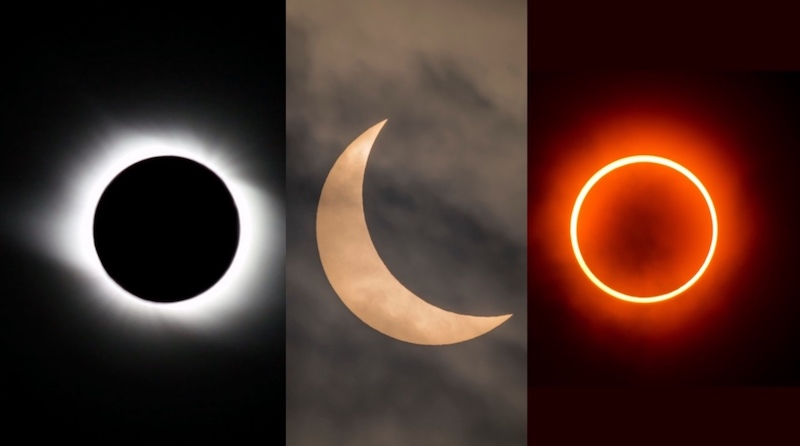[ Earthwatchers ] [ Main Menu ]
97371
From: the Hierophant, [DNS_Address]
Subject: What's with all the big eqs around the world today?
|
5.0 Nepal, 5.9 Veracruz Mexico, 6.2 and a 5.9 and a 5.5 Western Afghanistan, 6.7 Eastern New Guinea region, Papua New Guinea, 5.0 Izu Islands, Japan region....and the day is just getting started! |
97372
From: eaamon, [DNS_Address]
Subject: Re: What's with all the big eqs around the world today?
| the sun and moon being closest to earth lining up!? |
Responses:
[97373]
97373
From: Eve, [DNS_Address]
Subject: Re: What's with all the big eqs around the world today?
URL: https://earthsky.org/sun/annular-solar-eclipse-october-14-2023/
|
EXCERPT: Annular solar eclipse October 14, 2023 The first of two great American solar eclipses is coming. The “ring of fire” solar eclipse of Saturday, October 14, 2023, will be visible to those along a narrow path sweeping over North and South America. At mid-eclipse, those along that eclipse path will see the sun in a ring around the moon. Conversely, those outside the shadow path will see a partial solar eclipse. Important: this is not a total eclipse. At no time during this eclipse will it be safe to look at the sun without proper eye protection. Astronomers called this an annular eclipse of the sun. That name comes from the Latin word for ring: annulus. And, to be sure, though not as dramatic as a total solar eclipse, this eclipse will be fascinating to view. You really only need to know two things. First, how much of the sun will be covered from your location? Second, what time is the eclipse from your location? More about that in the next section. Overall, the eclipse will last 214 minutes. At maximum eclipse – for those along the eclipse path – the sun will be 0.907 percent covered by the moon. The part of the sun that will visible is its outer surface. So an annular eclipse is essentially a partial eclipse, throughout the event. And remember, use eye protection! ...continued at link: https://earthsky.org/sun/annular-solar-eclipse-october-14-2023/ ~~(misc.~ Earth in constellation Pisces, Neptune also in constellation Pisces.... Sun and Moon in constellation Virgo, Mars and Mercury also in constellation Virgo)~~Eve  The appearance of a total solar eclipse (left), partial solar eclipse (middle) and annular solar eclipse (right). The one on the right – the annular eclipse – is what those along the eclipse path will see on Saturday, October 14. And we’ll have a total solar eclipse visible from North America on April 8, 2024. Image via K. Bikos/ timeanddate.com. |
Responses:
None
[ Earthwatchers ] [ Main Menu ]